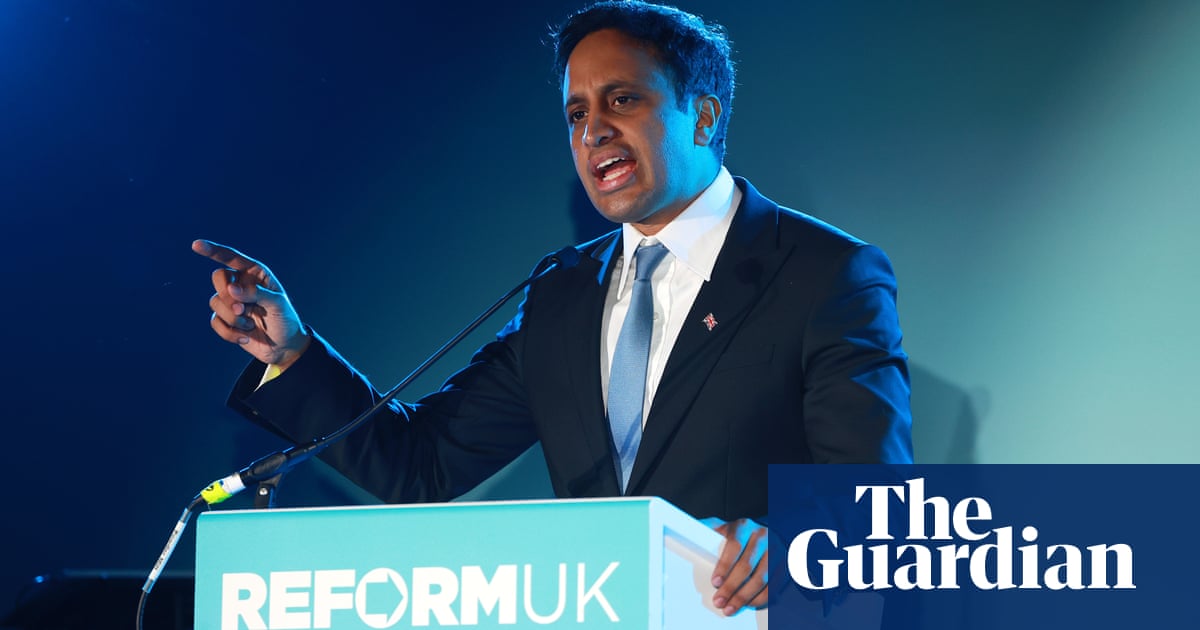Reform UK has vowed to use “every instrument of power” to resist housing people seeking asylum in areas where it now controls councils, its chair has confirmed.
Zia Yusuf, the party chair and a major donor, acknowledged Reform may not be able to stop people seeking asylum being put up in hotels where the Home Office has contracts with accommodation providers.
However, he said the party would use “judicial reviews, injunctions, planning laws” in an effort to prevent them being accommodated.
“You know, a lot of these hotels – there has been litigation around this already – a lot of these hotels, when you suddenly turn them into something else, which is essentially a hostel that falls foul of any number of regulations, and that’s what our teams of lawyers are exploring at the moment,” Yusuf told the BBC One’s Sunday with Laura Kuenssberg programme.
Yusuf’s comments were made after Nigel Farage, Reform’s leader, said he would “resist” those seeking asylum being housed in the10 council areas where his party had taken controlafter winning more than670 seats overall in Thursday’s local elections.
Since then, Reform has come under scrutiny over some of its promises to slash spending at councils and prevent the housing of asylum seekers. The party has said it wants to cut diversity, equality and inclusion (DEI) officers and work at the councils it controls, despite this being a very small part of their budgets, with most money spent on social care and education.
Yusuf said Reform would introduce taskforces to audit spending in the councils where it had won control and suggested the party would be digging into what local authority job roles involved in order to cut costs.
“If you take Lincolnshire county council, yes, they do not currently have somebody with the job title ‘DEI officer’, [but] they do spend considerable money on DEI initiatives,” he said.
Yusuf said the party was “realistic” about the fact the levers of change at a local level “pale in comparison” to the powers of Westminster. “That’s why this is part of a journey to making Nigel the prime minister with a Reform majority,” he said.
Andrea Jenkyns, Reform’s new Greater Lincolnshire mayor and a former Conservative MP, also confirmed her suggestion that immigrants could be housed in tents, saying the UK was “acting like bees to honey by putting people in hotels”.
“This is taxpayers’ money and it should actually be tents, not rent,” the former Tory minister told LBC.
Sign up toFirst Edition
Our morning email breaks down the key stories of the day, telling you what’s happening and why it matters
after newsletter promotion
Jenkyns also said she wanted to cut up to 10% of Lincolnshire county council’s staff and “root out the waste” at the local authority.
“I think, personally, [we] ought to look at maybe cutting the workforce by up to 10%. We’ve got to have a lean, mean local government. That’s what I personally like to see, but again there’s variables there, because we haven’t elected a Reform county council leader yet, so there’s got to be discussions.”
Jenkyns also said she was “up for a fight” with the unions, after the head of Unison urged staff at Reform-run councils to join them and secure union protection.
